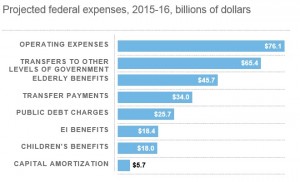***Updates – March 2020***
- NEW Income Tax Filling Deadlines: the 2019 tax return filling date has been extended
- Individuals: extended to June 1st 2020.
- Self-employed individuals and their partners: unchanged June 15th 2020.
- Corporations: extended to June 1st 2020 for corporations that would otherwise have a filling due date between March 18th 2020 and June 1st 2020.
- Trusts: extended to May 1st 2020 for trusts with a taxation year-end of December 31st 2019.
- Charities: extended to December 31st 2020 for charities with Form T3010 due between March 18th 2020 and December 31st 2020..
- NEW Income Tax Payment Deadline: taxpayers will have until September 1st 2020 to pay any 2019 income tax amounts owed. This includes businesses’ income tax amounts that become owing or due after March 18th 2020 and before September 1st 2020.
REMARK: some Notice of Assessments have been sent with the incorrect due date of April 30th 2020. This date is incorrect. Your payment deadline is September 1st 2020
As we are in the midst of the RRSP season and the beginning of the income tax return season, I would like to remind you that we do offer bookkeeping & tax return services for individuals and businesses. Please contact me directly to schedule an appointment.
A few important items to keep in mind for the 2019 tax year:
- RRSP Contribution Deadline: March 2nd 2020 for 2019 tax year. Yes, it is just around the corner. Why wait until the deadline? Do it as early as you possibly can.
RRSP Maximum Contribution Limit is $26,500 for 2019 tax year, or 18% of your earned income, whichever is lower, plus any unused contribution room from previous years. - Income Tax Return Deadline: April 30th 2020 for most taxpayers. If you or your spouse carried on a business in 2019, you have until June 15th 2020 to file your return. However, your balance, if any, still has to be paid no later than April 30th 2020 to avoid interest and penalty.
- If you are expecting a refund, file your return now and get back your money as soon as possible.
- If you are expected to pay, send in your return before April 30th, even if you can’t pay your balance, to avoid late-filing penalty.
- T4/T4A Return Deadline: March 2nd 2020, for 2019.
- Business GST/HST Return Deadline: June 15th 2020, for most GST/HST registrants, if you have an annual reporting period. However, your balance, if any, has to be paid no later than April 30th 2020.
- Sale your home in 2019? Since 2016, you have to report the sale on your tax return in the year you sold it. However, if it is your principal residence, you usually do not have to pay any capital gain tax.
- Got married/divorced in 2019? Have a baby in 2019? Change in these statuses can impact your taxes and benefits. Make sure to mention these changes to your tax professional.
- Moved in 2019? You may be eligible to claim moving expense if your new home is at least 40 kilometers (by the shortest usual public route) closer to your new work/school.
- Foreign Property? If you have foreign properties and/or held foreign investments in your portfolio, with a total of $100,000 or more, you need to report them on the T1135.
- Taxable account expense? Management fees related to your non-registered accounts may be tax deductible.
Most companies and institutions are to start sending out the receipts and T-slips soon. May I suggest you start a brand-new folder for those and keep them all in there as they arrive. This will make it much easier when the time comes for filing your tax returns.
Remember to always “Dream It. Plan It. Live It.”
I am here to help you on your journey. Reach out if I can be of any assistance.









 Finance Minister Joe Oliver delivered his first Federal budget on April 21st, 2015.
Finance Minister Joe Oliver delivered his first Federal budget on April 21st, 2015.